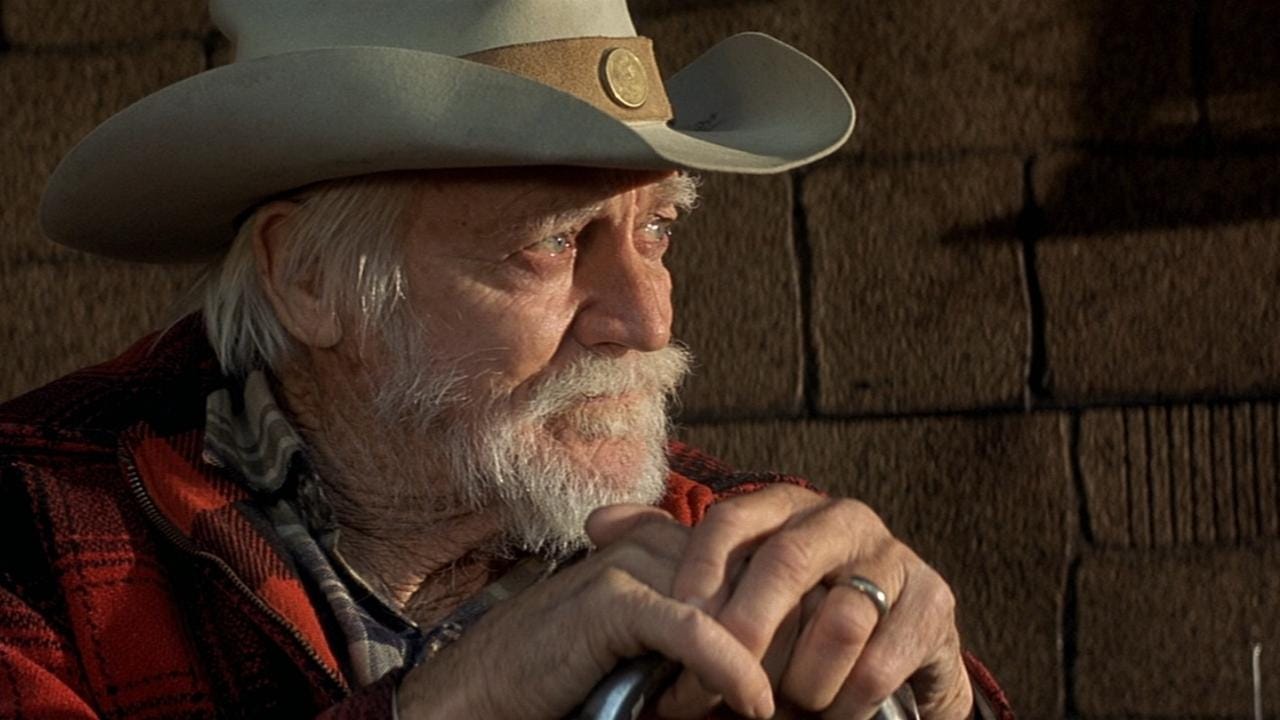ONE FROM THE HEART

I thought re-watching The Elephant Man (1980) had finished me off emotionally, psychologically, and spiritually—but no. Returning to David Lynch's The Straight Story (1999) was the real knockout I should have anticipated having seen the film many years before.
Watching both these two films practically back-to-back, I have been truly humbled and reminded that there exists a god-tier level of filmmaking, where the director finds a way to open your weary heart and channel it directly into the main pipeline of the cosmos—the same cosmos Lynch frequently uses as a recurring visual motif in his films, signifying totality itself (if such a thing is even possible).
You can be as pseudo and geeky as you like about cinema, but if you watch films like The Elephant Man and The Straight Story, you are returned to a place of such purity that it almost shocks you—shocks you that this is the exception rather than the rule in cinematic storytelling (at least in the West). This is how it should always be: a direct expression from the heart. Or, to quote Frank Booth from Blue Velvet, "a love letter."
Perhaps there is an added poignancy to The Straight Story knowing that it was legendary cinematographer Freddie Francis’s final film, as well as Richard Farnsworth’s (who plays lead character Alvin Straight). Farnsworth tragically took his own life not long after filming due to his terminal cancer. In his performance, there is a complete shedding of ego—a contender for the most natural performance ever captured on screen—as he was no doubt deeply aware of his own mortality during the making of the film. I have no doubt Lynch understood this and faced it head-on as a director, capturing every nuanced flicker of doubt, regret, and fear in the aging actor's eyes. It is truly a thing of beauty—something only a filmmaker as spiritually attuned as Lynch could capture in such a pure, unaffected way.
Certainly, this film could just as easily be described as a spiritual work as much as a road movie—albeit a road movie with a twist, featuring a lawnmower instead of a Thunderbird convertible like Thelma & Louise or a custom Harley-Davidson chopper like Dennis Hopper's in Easy Rider. Alvin Straight, embarking on a 240-mile journey from Laurens, Iowa, to Mt. Zion, Wisconsin, to see his ailing brother, seems to understand that this is a symbolic journey as much as a practical one. Every stranger who shows him kindness along the way is a reflection of his own good nature, reinforcing the timeless karmic lesson: treat others as you wish to be treated.
The profound realisation that Lyle Straight (Harry Dean Stanton) has at the very end of the film—when he is reunited with his brother Alvin—is expressed entirely in his mournful, tear-filled eyes. He understands that the true measure of his brother’s love is not in words spoken but in the miles Alvin has traveled on his John Deere lawnmower to reach him.
Without a doubt, with his recent passing, Lynch has left us with more than just films—he has left us with profound spiritual lessons that will shine like the brightest of stars in the night sky.